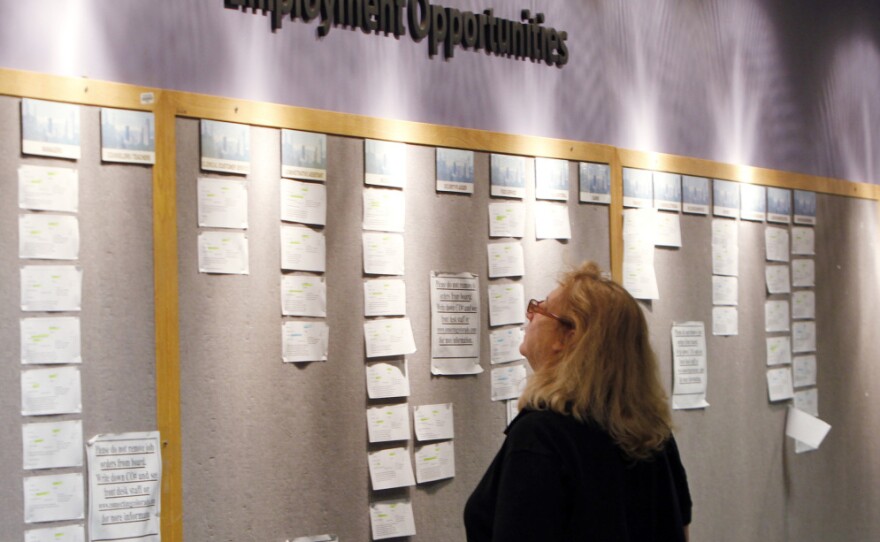Every day Congress spends bickering about the debt ceiling is a day lawmakers aren't tackling other problems. And that includes a sluggish economy that's left millions of Americans out of work.
For some in the current debate, the government's focus on budget deficits is a start toward a better economy. For others, it's a distraction from dealing with the real problems of unemployment. If lawmakers aren't careful, the deficit reduction deal could actually make the jobs picture worse.
Not Able To Focus On Anything Else
With unemployment at 9.2 percent, there's no shortage of remedies the government could try. As President Obama told a Latino civil rights group on Monday, he'd like to extend the payroll tax cut to put more money in circulation, ink new trade deals to boost U.S. exports and hire idle construction crews to rebuild roads, schools and bridges.
"My No. 1 priority every single day is to figure out how we can get businesses to hire and create jobs with decent wages," he said.
But the president can't do any of that right now. As he bluntly told a group of mayors on a conference call recently, until the debt ceiling debate is resolved, any steps to encourage job growth are on hold.
"He shared with us that until we get beyond this current acrimonious conversation, that we are going to find it difficult on the federal level to focus on anything but that conversation," says Kansas City, Mo., Mayor Sly James.
James is one of a bipartisan group of mayors who met with the president last month to talk about steps the government could take to encourage job growth. The mayors are still talking among themselves. But James says Washington now seems preoccupied with a different conversation.
"While Washington seems to be focused on the issues of debt ceilings and reducing the deficit, the folks that we as mayors meet every day will walk up and ask, 'Where do I find a job?' " he says.
Pennsylvania Sen. Bob Casey hears the same frustration from his constituents.
"We've got to get off this subject. People are disgusted, and they have good reason to be disgusted," Casey says. "And one of the implicit messages they're sending is, 'You're not dealing with what is bothering me the most. You're not dealing with job creation.' "
A More Urgent Problem
Casey spoke Tuesday morning at a breakfast sponsored by Politico. The topic was supposed to be jobs of the future, but the conversation was dominated by the debt ceiling debate instead.
Former White House economist Jared Bernstein complained that as serious as the budget deficit may be, the jobs deficit is a more urgent problem.
"It's an extremely unfortunate time to be obsessed with a completely manufactured crisis, the debt ceiling debate, and a discussion which is leading us to more austere measures, which if anything, will lead us to more economic contraction and fewer jobs," Bernstein says.
Cutbacks in government spending — especially at the state and local level — have already cost more than 500,000 jobs since President Obama took office.
Economist Nariman Behrevesh of IHS Global Insight says if deficit reduction is done the wrong way — with too much cutting, too quickly — it could throw more people out of work and weaken the economy further.
"Already the government sector is a net drag in terms of employment on the economy, and the worry of course is that would increase quite substantially if we were to start slashing spending right away," Behrevesh says.
That's not to say the government doesn't need to get control of its deficits. But Behrevesh says deep cuts can wait at least until 2013, when it's hoped the economy will be stronger. Even then, most forecasters think the unemployment rate will still be painfully high.
Copyright 2022 NPR. To see more, visit https://www.npr.org. 9(MDAzMjM2NDYzMDEyMzc1Njk5NjAxNzY3OQ001))







